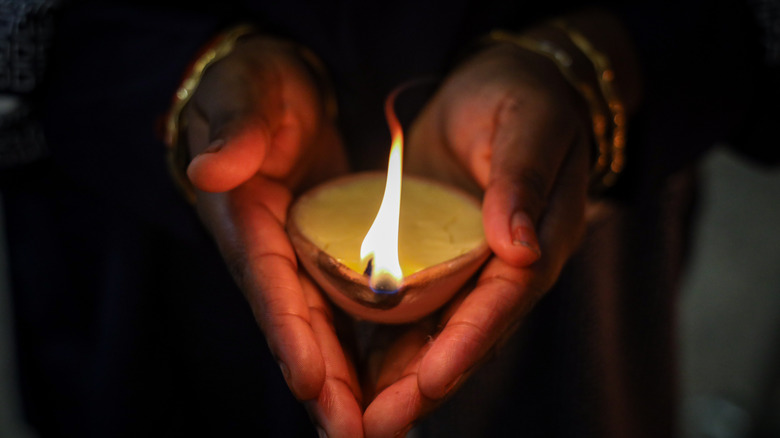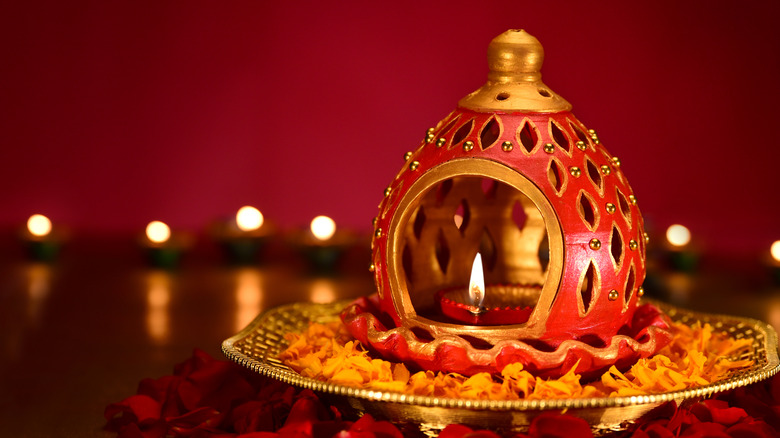What Is Diwali And Why Is It Celebrated?
From Dia de los Muertos to Thanksgiving, from Halloween to Eid, the world is privy to a huge range of holidays and festivals. Some are honored in the most solemn and devout manner, while others are celebrated with raucous parties and food. Truly, family and cultural traditions mean that everybody's holiday experience will be different, and it's fascinating to see the variety of ways in which people around the world honor these special events. Per Britannica, Diwali is a Hindu festival also celebrated by Sikhs and followers of Jainism, among others. It is named for the Sanksrit term "dipavali" — which means "row of lights" in English — and its meaning ranges from a celebration of a deity's marriage to the honoring of another god's victory over a fearsome demon. Let's take a closer look at this intriguing event on the world calendar and why it's celebrated.
Diwali is a five-day festival that stretches from day 13 of the lunar month Ashvina to day two of the lunar month Karttika, which means its dates differ each year. These dates usually coincide with late October and the beginning of November, covering the dark half of the former lunar month and the light half of the latter. According to Religion Facts, this is because the Hindu calendar is a lunar one, which symbolizes one of the key concepts of the Diwali festival: light trumping dark, good triumphing over evil.
Diwali is a celebration of light and happiness
According to the Society for the Confluence of Festival of India, Diwali is a joyful celebration often marked by the lighting of earthen lamps (known as Diyas), the exchanging of gifts, and the lighting of fireworks. Homes are also decorated with elaborate traditional Indian rangoli art, and each of the five days has a separate significance, which sometimes varies by region. In Britain, according to Religion Facts, the days of Diwali are called Dhanteras, Narak Chatrudashi, Lakshmi-Puja, Padwa, and Bhaiya Dooj (the day of the Teeka Ceremony).
The meaning of the celebrations, as well as the manner, varies. Per Britannica, some Diwali celebrations center on Vishnu's marriage to Lakshmi. Elsewhere, Bengal Diwali honors the goddess Kali, while Southern India celebrates the victory of Krishna over the monstrous fiend Narakasura. In the north of the country, Rama's defeat of the king of demons, Ravana, is the focus.
The Evening Standard notes that for Sikhs, Diwali celebrates the end of Hargobind Singh's incarceration, which took place in 1619. In Jainism, Diwali marks Tirthankar Mahavir Bhagwan's achievement of Nirvana, per Young Jains UK. Wherever and however Diwali is celebrated around the world, though, it's a joyous festival of hope, happiness, light, and love.

